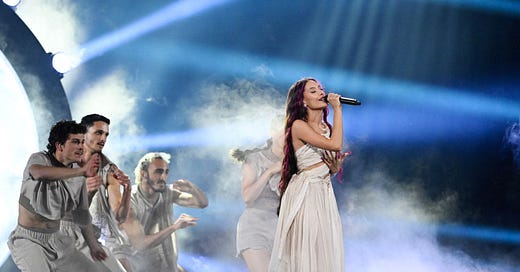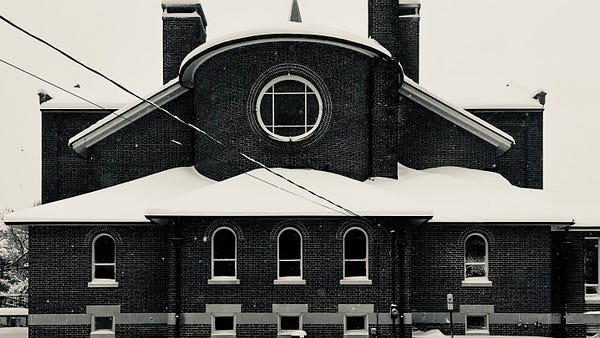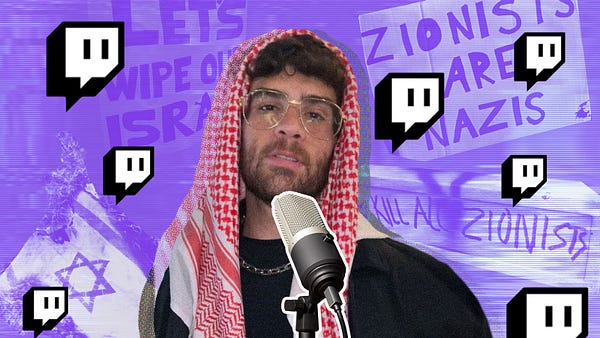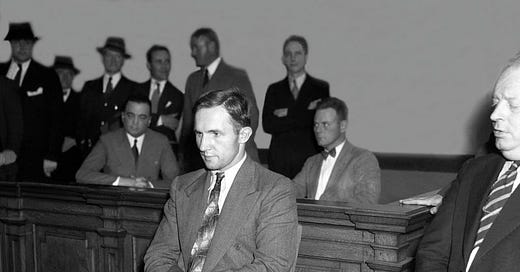
I’d never watched or really cared about Eurovision, the campy, colorful, and at times ridiculous international song competition. Twenty-six musical acts from across Europe—plus other countries that are part of the European Broadcasting Union (like Australia, Armenia, Israel, and Morocco)—compete, but much like soccer, I counted it as something that entertains and occupies fans far away.
This year was different.
Amid the Israel-Hamas War, a campaign was mounted to boycott Eurovision for allowing Israel to participate. Over 1,000 Swedish musicians, including the pop star Robyn, signed a petition calling for Israel’s exclusion. In Finland, 1,300 artists signed a similar petition. Bars here in New York announced they wouldn’t screen the competition in protest. Israel was forced to revise their song after its original entry, “October Rain,” was deemed too political by the EBU. This was all before anyone took to the stage. By the time the actual event came around, prompting thousands to swarm Malmö, Sweden, the host city, in protest of Israel’s participation, I couldn’t look away.
At the center of the firestorm was 20-year-old Eden Golan, who faced death threats, jeers during rehearsals and her performance, and hostility from fellow competitors who pretended to fall asleep while she spoke during press conferences and told reporters how they cried upon hearing that Golan had advanced to the final round. The eco-darling Greta Thunberg was arrested while protesting Golan, who was made to stay in her hotel and required extra security, including the head of Israel’s Shin Bet, to keep her safe.
Despite calls for boycott, 163 million people tuned in to Eurovision this year to watch Golan and the other performers. She placed fifth, and snagged the number two spot when it came to the public vote.
I sat down with Golan in New York, in her first in-depth interview since the competition, to talk about how she handled the pressure of being the most-hated performer in Eurovision history before ever singing a note, how it feels to represent Israel since October 7, and what comes next.
Watch our conversation below:
And for more in-depth interviews, investigations, and commentary, subscribe to The Free Press:













I can understand Europe, with their long and sordid history of anti-Semitism protesting Eden's inclusion in Eurovision. However, I never thought I'd see the day in which anti-Semitism would rear its ugly head in the US to the degree it has. I fortunately live in an area in north Texas which is ardently pro-Israel and pro Jewish people, so we still have hope in this country that we'll continue to stand with Israel,.notwithstanding the Biden admins plaque of Israel haters. I do admire the young woman for her sunny disposition and strength and laud her for carrying on in spite of all the vitriol.
I loved this interview, so uplifting in the middle of such continuous pain. I also enjoyed seeing Suzy "on the job," she is perfect for this role.